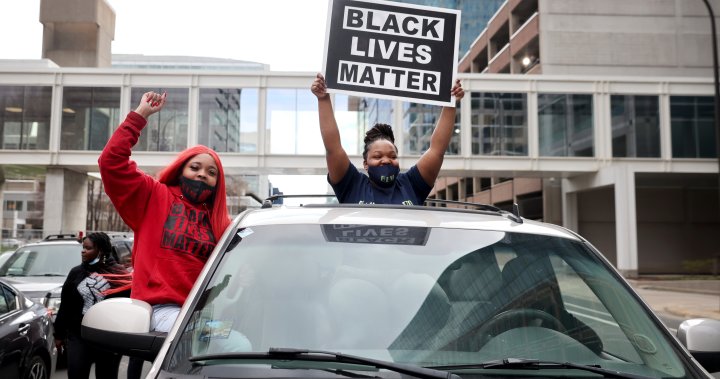
Derek Chauvin moved to Arizona medium-security prison in George Floyd murder
Global News
Chauvin was taken from a maximum-security prison in a Minneapolis suburb, where he often spent most of his day in a 10-by-10-foot cell, to the Federal Correctional Institution.
Derek Chauvin has been moved from a Minnesota state prison where he was often held in solitary confinement to a medium-security federal prison in Arizona, where the former police officer convicted in George Floyd’s killing may be held under less restrictive conditions.
Chauvin was taken Wednesday from a maximum-security prison in a Minneapolis suburb, where he often spent most of his day in a 10-by-10-foot cell, to the Federal Correctional Institution in Tucson, according to the Bureau of Prisons.
The Tucson facility houses 266 inmates, both male and female, as part of a larger complex that includes a high-security penitentiary and a minimum-security satellite camp.
Bureau of Prisons spokeswoman Randilee Giamusso declined to detail the circumstances of Chauvin’s confinement, citing privacy, safety and security concerns.
Experts said earlier that Chauvin was likely to be safer in the federal system. It typically houses less-violent inmates, and he’d be less likely to mix with inmates he had arrested or investigated as a Minneapolis police officer.
“It’s dangerous to be an officer in any prison,” former U.S. Attorney Tom Heffelfinger said after Chauvin was sentenced last month. “It’s even more dangerous in state prison because of the nature of the inmate population. There are gangs, for example. And police officers just don’t do well there. Those risks are reduced in a federal prison.”
The federal prison system does house many high-profile inmates, but it is also plagued by gangs and chronic violence. The entire federal prison system was put on a nationwide lockdown in January after two inmates were killed and two others were injured during a gang altercation at a federal penitentiary in Texas.
The Bureau of Prisons has also faced increasing scrutiny of violent incidents and serious misconduct in its ranks. Associated Press investigations have uncovered abuse, neglect and leadership missteps, including rampant sexual abuse by workers, severe staffing shortages, inmate escapes and the mishandling of the COVID-19 pandemic.

